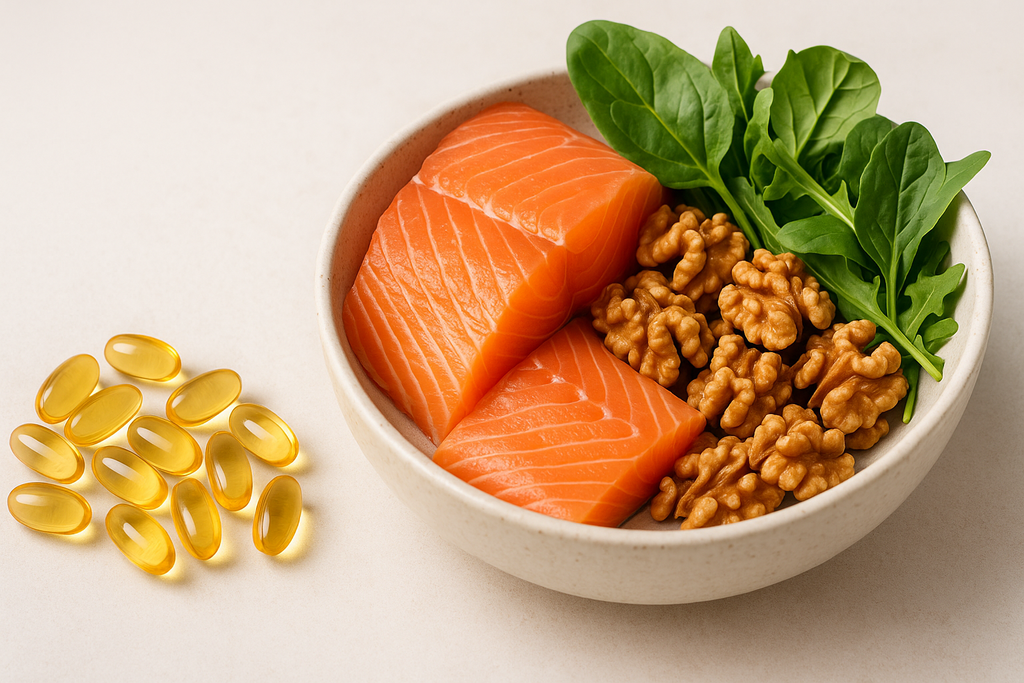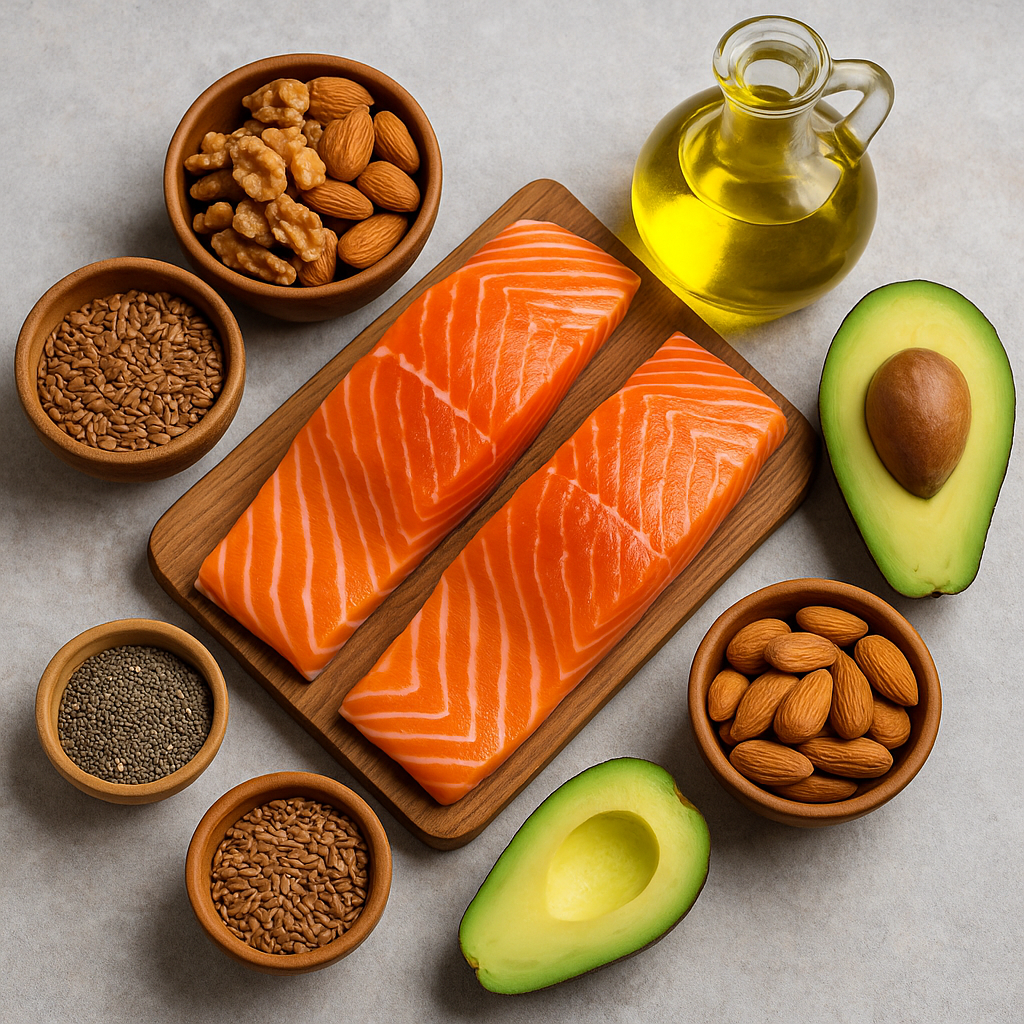News — omega-3 benefits
Fish Oil Unpacked: Full Guide to Omega-3 Benefits & Supplementation
best omega-3 supplement brain support clean fish oil EPA DHA eye health fish oil dosage fish oil FAQ fish oil for inflammation fish oil guide heart health high quality fish oil joint pain relief LongLife Nutri natural heart support omega-3 benefits omega-3 dosage omega-3 pregnancy omega-3 side effects skin health
In the world of nutritional supplements, few have earned the level of respect and widespread use that fish oil has. Rich in essential omega-3 fatty acids, fish oil has become a go-to choice for people looking to boost heart health, reduce inflammation, and support brain function. But with so many products on the market—and so many claims—it can be difficult to separate hype from science.
This comprehensive guide breaks down everything you need to know about fish oil: what omega-3s actually do, how to pick the right supplement, and what benefits you can expect from consistent use. Whether you're new to omega-3s or considering an upgrade, you'll find practical, research-backed insights here. For those ready to get started, consider Omega 3 Fish Oil 1000 mg by LongLife Nutri, a high-potency, clean formula with no fishy aftertaste.
The Silent Protector: Why Omega-3s Are Non-Negotiable for Heart Disease Prevention
algal oil anti-inflammatory foods arrhythmia prevention best omega-3 sources blood pressure control cardiovascular health cardiovascular protection cholesterol balance EPA DHA benefits fish oil supplements healthy fats heart disease prevention heart health supplements heart rhythm regulation krill oil omega-3 benefits omega-3 deficiency omega-3 fatty acids plaque buildup prevention triglycerides reduction
Heart disease remains one of the leading causes of death worldwide, often striking without warning and altering lives in an instant. While many factors contribute to cardiovascular health, one nutrient consistently stands out for its protective benefits: omega-3 fatty acids. Often referred to as the "silent protector," omega-3s quietly work behind the scenes, fortifying the heart and circulatory system against numerous threats.
Despite their well-documented advantages, many people overlook the importance of omega-3s in their daily diets. As modern lifestyles gravitate toward processed foods and poor nutritional habits, ensuring adequate intake of these vital fats becomes not just beneficial but essential. This article delves into the profound role omega-3s play in heart disease prevention and why incorporating them into your routine is a non-negotiable step toward lifelong cardiovascular health.
Scientific Evidence: How an Anti-Inflammatory Diet Improves Health
anti-inflammatory diet anti-inflammatory foods anti-inflammatory herbs anti-inflammatory lifestyle autoimmune diet blood sugar control chronic inflammation curcumin food as medicine gut health health supplements inflammation and brain inflammation and heart disease inflammation reduction joint pain relief LongLifeNutri Mediterranean diet omega-3 benefits reduce CRP turmeric supplements
Chronic inflammation is increasingly recognized as a silent contributor to a wide range of health problems — from fatigue and joint pain to heart disease, diabetes, and even cognitive decline. While inflammation is the body’s natural response to injury or infection, persistent low-grade inflammation can damage tissues and disrupt normal functioning. Fortunately, one of the most effective ways to combat this is through diet.
An anti-inflammatory diet emphasizes whole, nutrient-rich foods that help regulate the immune response and reduce oxidative stress. Backed by mounting scientific evidence, this way of eating has been shown to lower the risk of chronic disease, support gut health, and promote overall vitality. In this article, we’ll explore the science behind the anti-inflammatory diet, key foods to embrace or avoid, and how to implement these changes for long-term health benefits.
The Role of Diet in ADHD: Why Omega-3 Fatty Acids Matter
ADHD and nutrition ADHD brain health ADHD diet ADHD in children ADHD management ADHD natural remedies ADHD supplements ADHD treatment best foods for ADHD best supplements for ADHD cognitive function DHA for brain fatty acids fish oil for ADHD focus improvement omega-3 benefits omega-3 deficiency omega-3 for ADHD
Attention-deficit/hyperactivity disorder (ADHD) affects millions of children and adults worldwide, making concentration, impulse control, and organization challenging. While genetics and environmental factors play a role in its development, growing research suggests that diet plays a significant part in managing ADHD symptoms. Among the most critical nutrients for brain function, omega-3 fatty acids stand out as essential for those dealing with ADHD.
Omega-3s are known for their role in brain development, cognitive function, and mood regulation. A deficiency in these essential fats has been linked to increased ADHD symptoms, making them a key area of focus for dietary intervention. But how exactly do omega-3s help, and what foods or supplements provide the best sources? This article explores the role of omega-3 fatty acids in ADHD and how optimizing intake can support better mental function.
The Cardiovascular Benefits of Flaxseeds: A Comprehensive Guide
antioxidants in flaxseeds blood pressure management cardiovascular benefits of flaxseeds cardiovascular wellness flaxseed dietary fiber flaxseed health benefits flaxseed recipes flaxseeds lower cholesterol healthy heart diet heart health flaxseeds heart-friendly foods lignans and heart health natural cholesterol-lowering remedies natural supplements for heart health omega-3 benefits omega-3 fatty acids plant-based heart health reducing inflammation naturally superfoods for cardiovascular health
Flaxseeds, tiny seeds packed with nutrients, have emerged as a powerhouse for promoting cardiovascular health. Whether sprinkled on oatmeal, blended into smoothies, or baked into bread, these seeds are more than a dietary addition—they are a health-enhancing marvel. Known for their rich omega-3 content, dietary fiber, and lignans, flaxseeds support the heart in multiple ways.
In this guide, we’ll delve into the specific cardiovascular benefits of flaxseeds, exploring their role in reducing cholesterol, managing blood pressure, and enhancing overall heart function. By the end, you’ll understand why this superfood deserves a spot in your diet.





